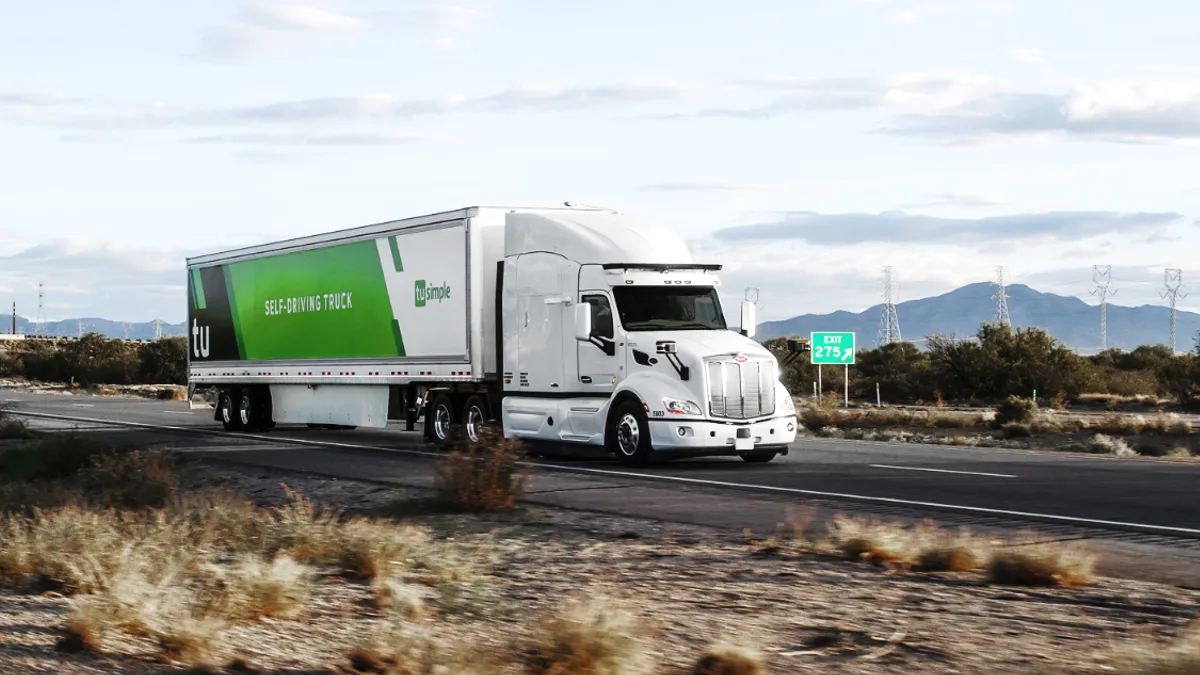LONG BEACH, Calif. — Battery-electric trucks and hydrogen fuel cells typically steal the show at the Advanced Clean Transportation Expo, which stresses clean, green trucking technology. But another type of futuristic trucking technology got its chance on stage on Wednesday in Long Beach: autonomous trucks.
Fleet executives' interests are piqued in autonomous vehicles, given increased demand for freight movement and difficulties in recruiting drivers to haul the freight.
Despite interest, the market has yet to deliver a fully autonomous Class 8 tractor to a North American fleet. In fact, Waymo often heard that high-autonomy technology was never going to happen in people's lifetimes, said Charlie Jatt, Waymo's head of commercialization for trucking, at the event.
Waymo initially looked at cars. It was not until 2017 that Waymo started testing Class 8 tractors with its equipment. In 2020, Waymo announced a partnership with Daimler Trucks North America. While Waymo offers passenger car trips in Phoenix, it's another part of the United States that has Waymo's Class 8 attention.
"On the trucking side ... more and more we're focusing especially on Texas," said Jatt.
In June, Waymo announced it signed an agreement with J.B. Hunt to carry freight for a top Texas customer of the fleet. Jatt said Waymo is building a dedicated and transfer hub in Dallas.
But Waymo's plan is not be a carrier or an OEM. Instead, it wants to offer technology to fleets and OEMs to develop vehicles that will one day go fully driverless. Driverless trucks will be able to offer the industry safety and efficiency, said Jatt.
Autonomous vehicles could also have a part to play in the green trucking movement. TuSimple has touted a "reduced carbon footprint" as one benefit of using its Autonomous Freight Network. The University of California San Diego found in a study that trucks using TuSimple's autonomy technology were 10% more fuel efficient than the same model of truck driven by a human driver, according to the OEM.
Chuck Price, chief product officer of TuSimple, said there is a "tremendous economic argument" to extending autonomy to trucks. They include a boom in freight while the industry struggles to find drivers.
To meet that demand, TuSimple is operating its trucks, with drivers, on streets and highways, and speeds up to 70 mph. The TuSimple trucks are being tested at night and during day, in bad weather and good, Price said.
But the process to deploy more sophisticated autonomous Class 8 products will be gradual and like an evolution, said Jatt.
Çetin Meriçli, CEO and co-founder of Locomation, told the audience to watch for automated trucks to target much-used lanes. Just as automation won't try to solve complex problems first, such as how to drive through a blizzard, fleets will likely target busy and worthwhile lanes, Meriçli said.
Jatt said ideal lanes for L4 trucks would be predictable hauls along known routes, populated with repeatable customers.
"The beautiful thing about trucking is that there are 10,000 trucks a day going between Dallas and Houston," said Jatt. "Just on single lane, there is a tremendous business opportunity."












